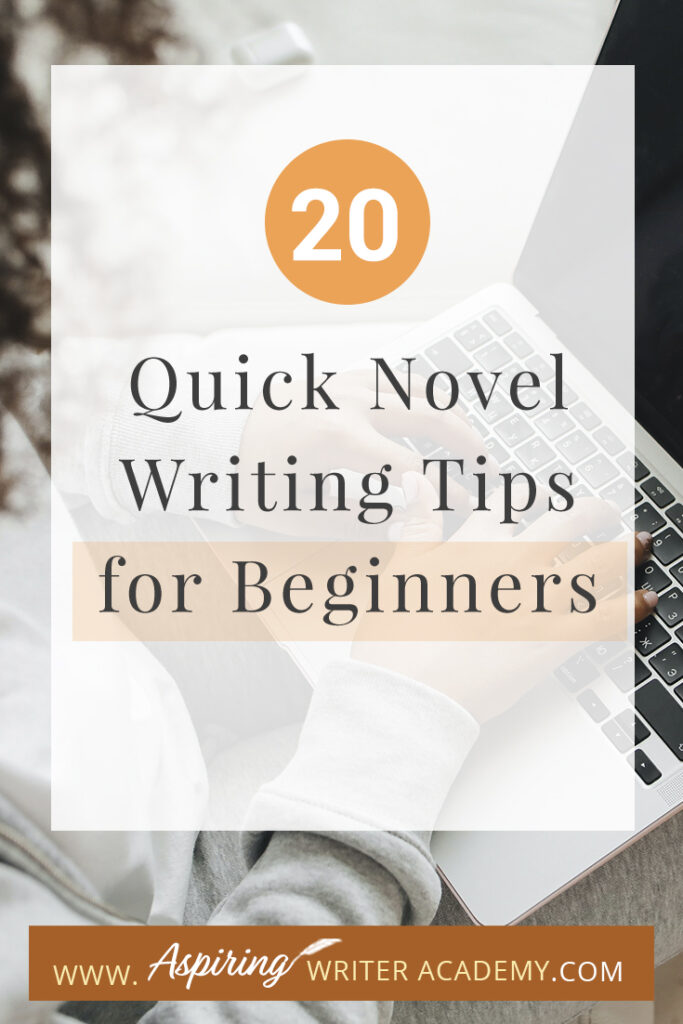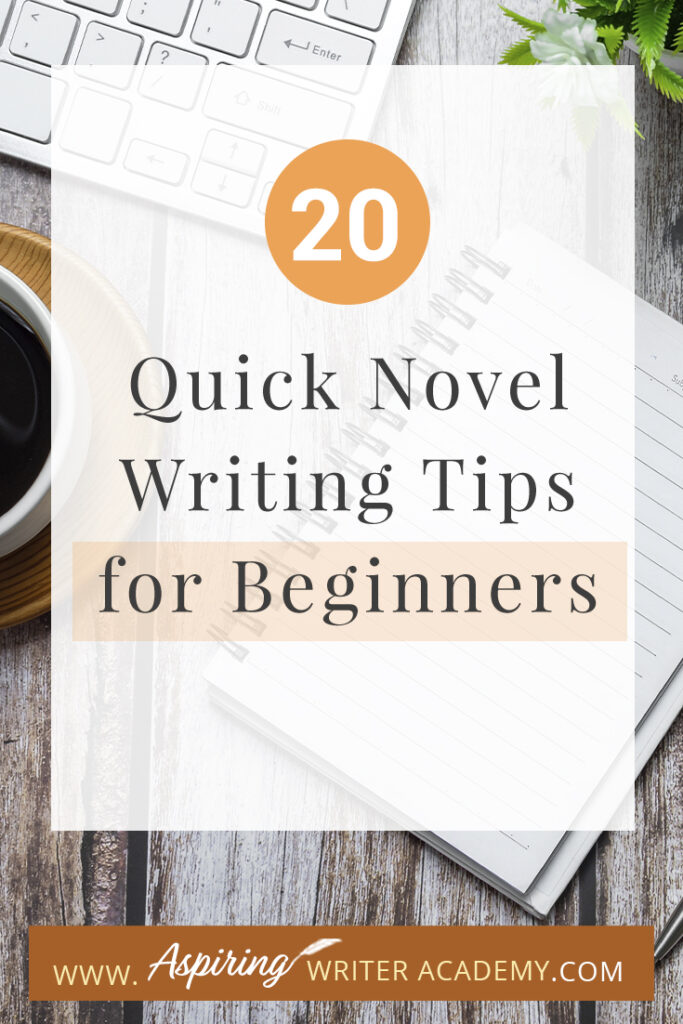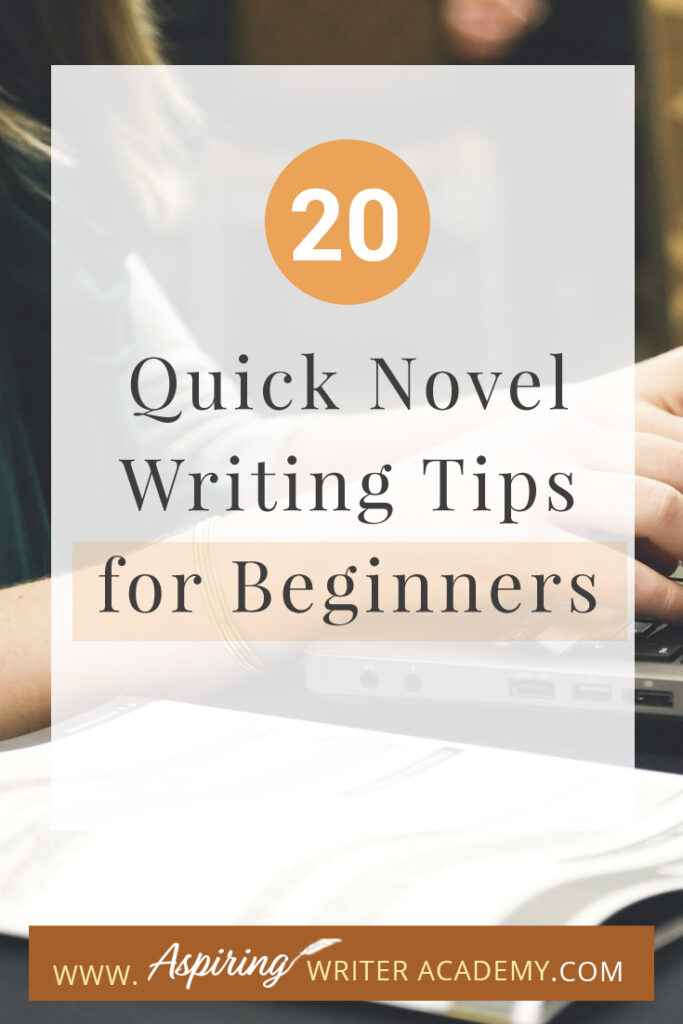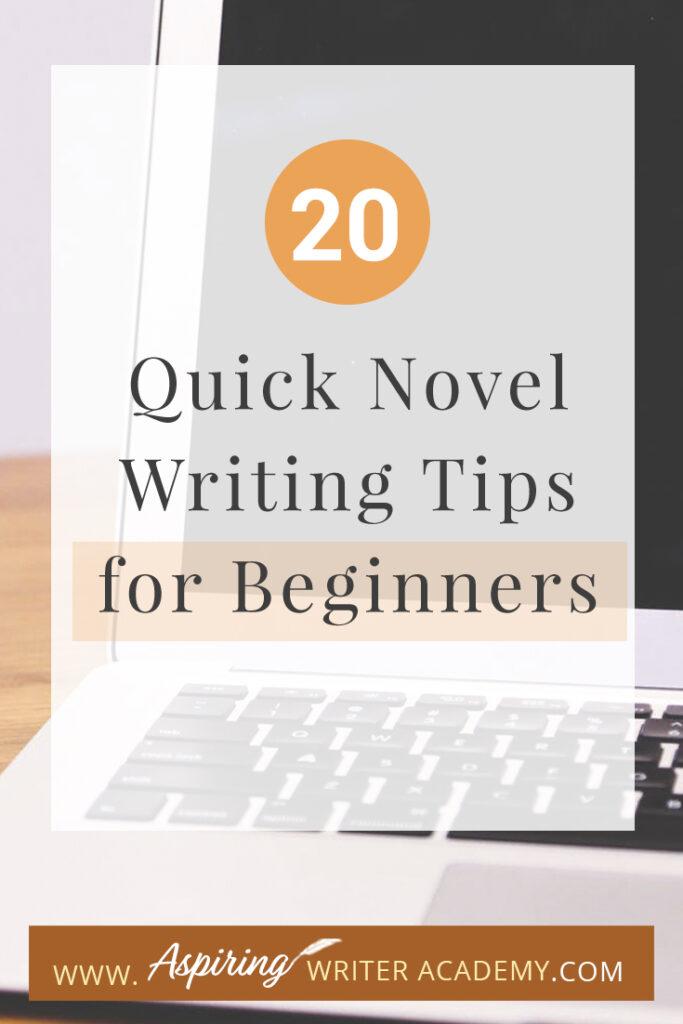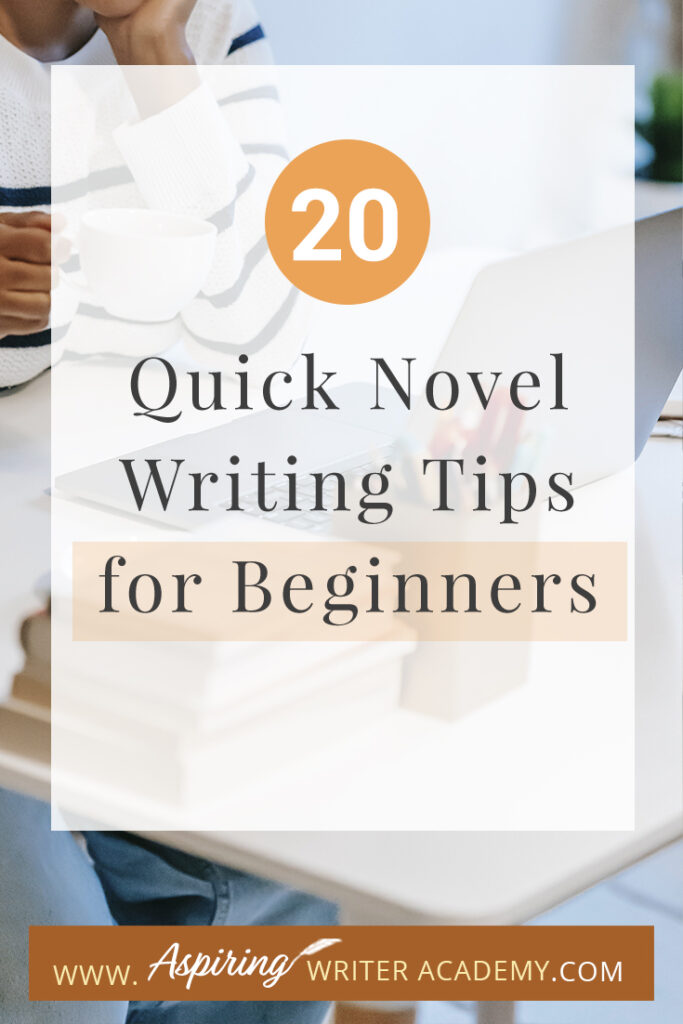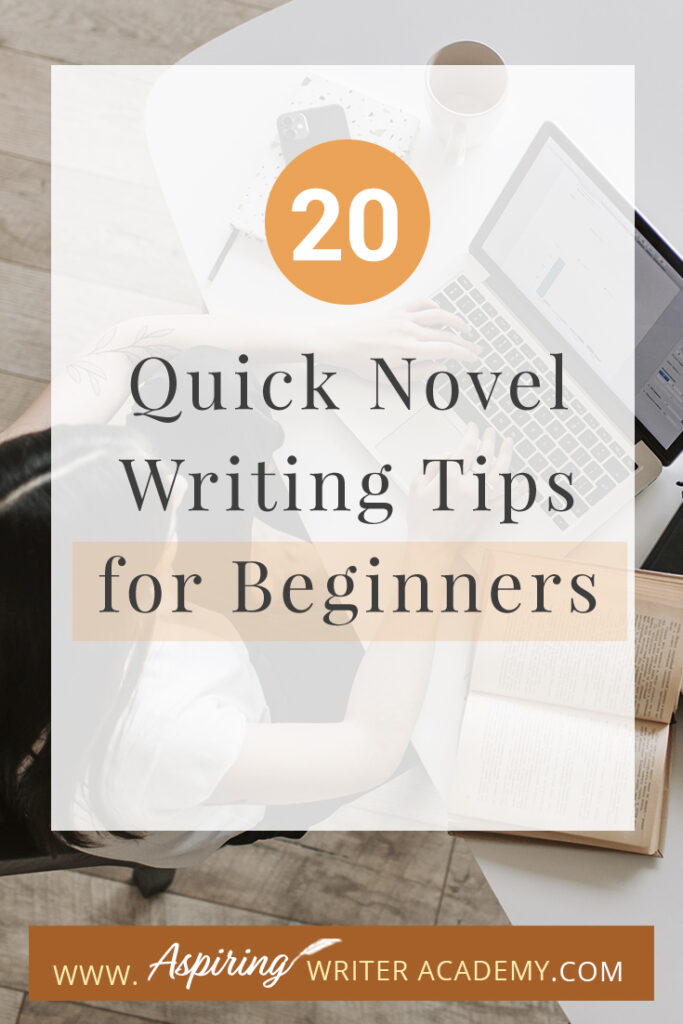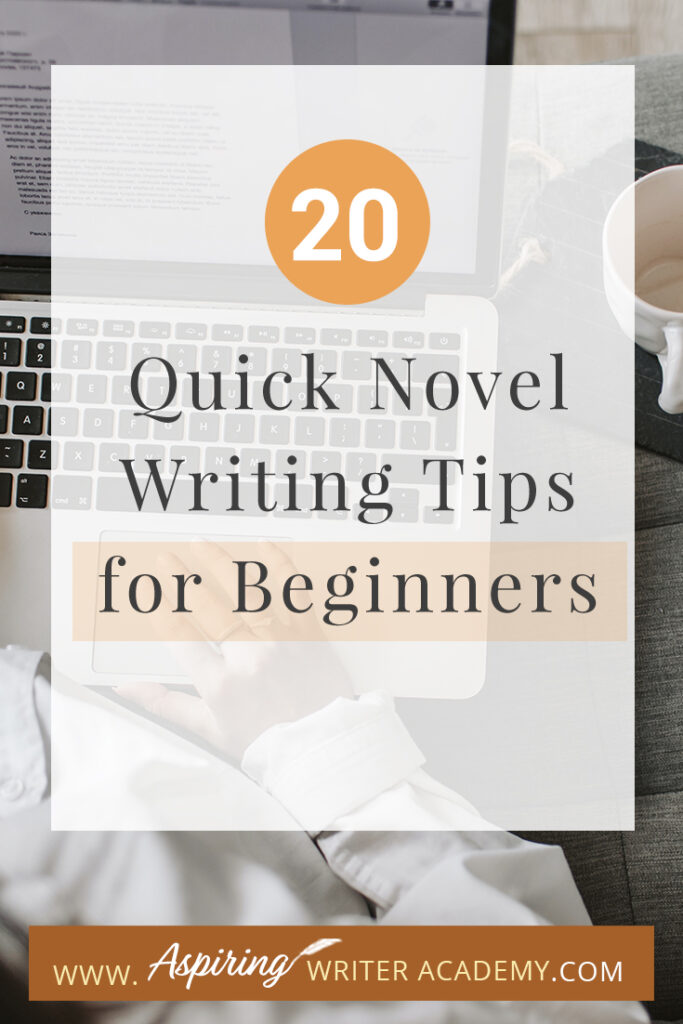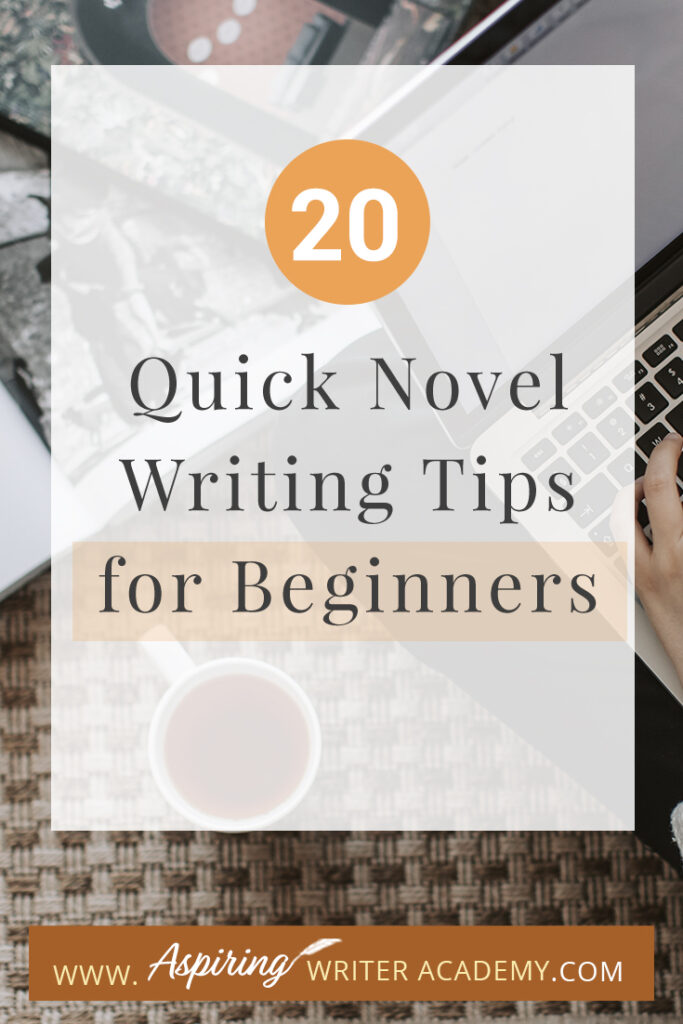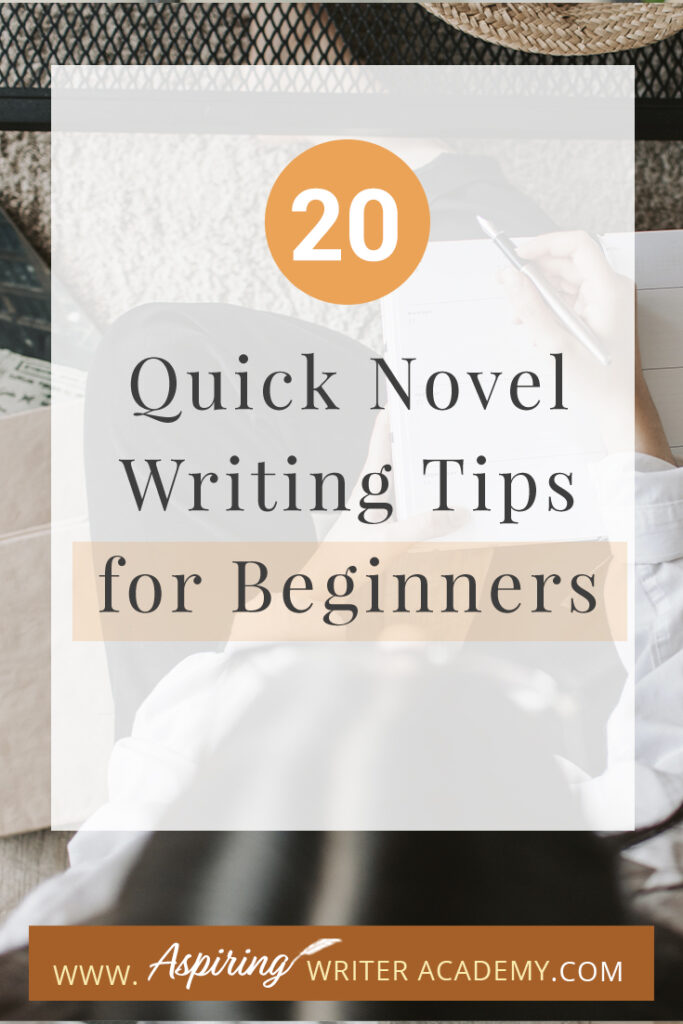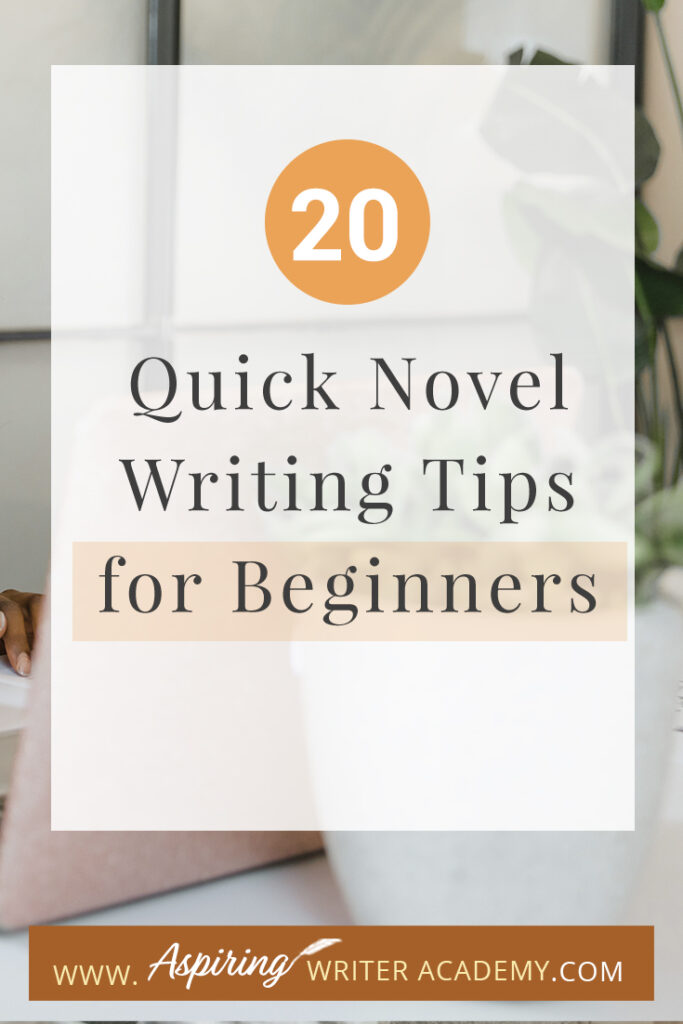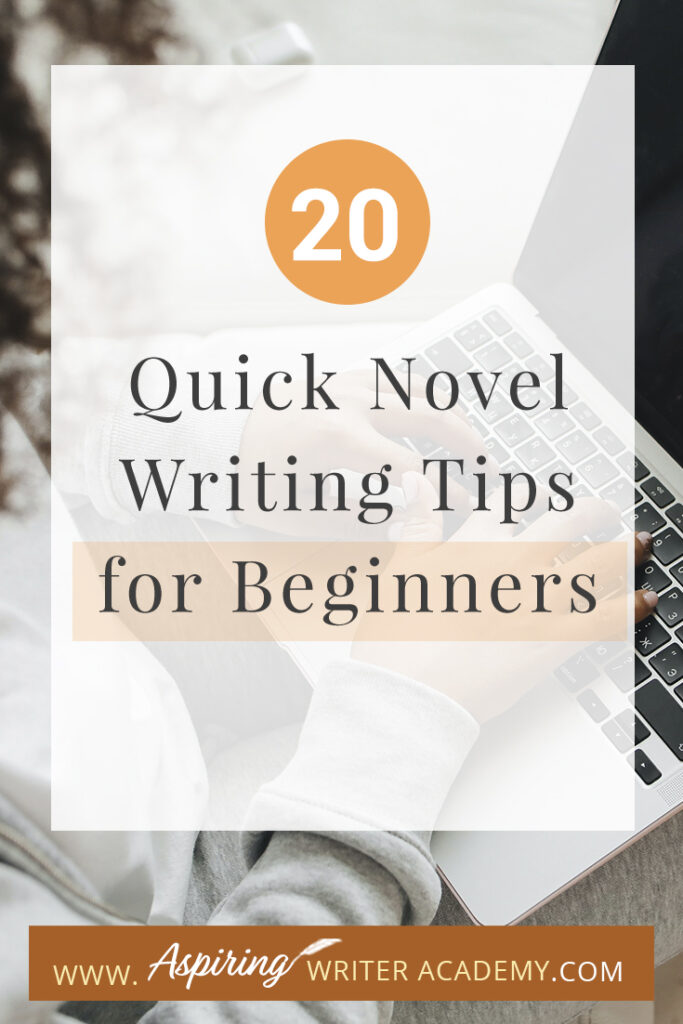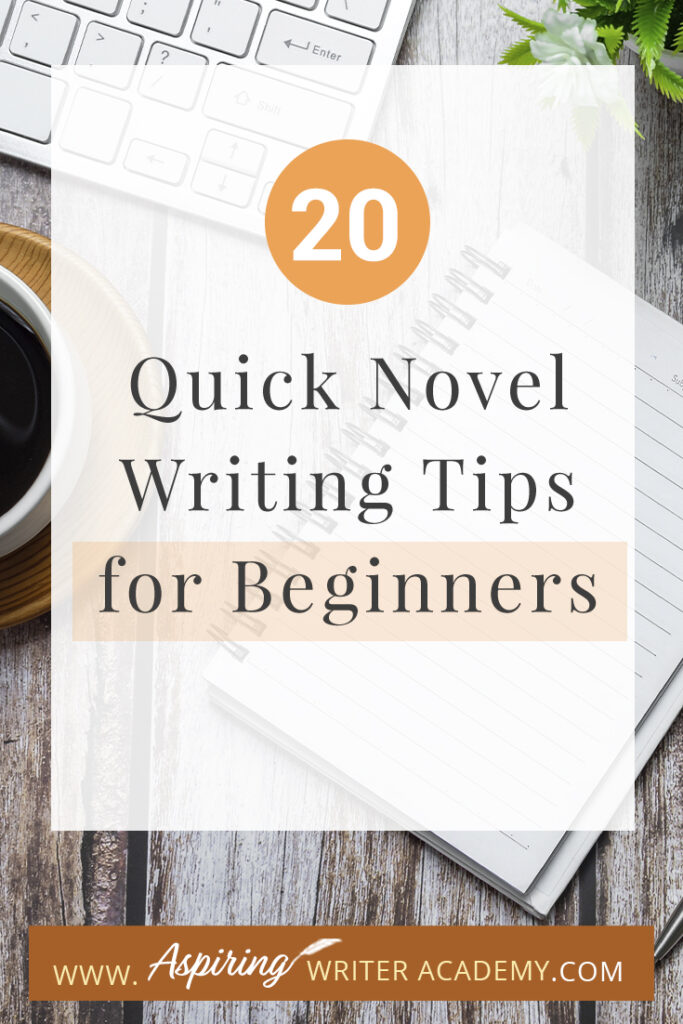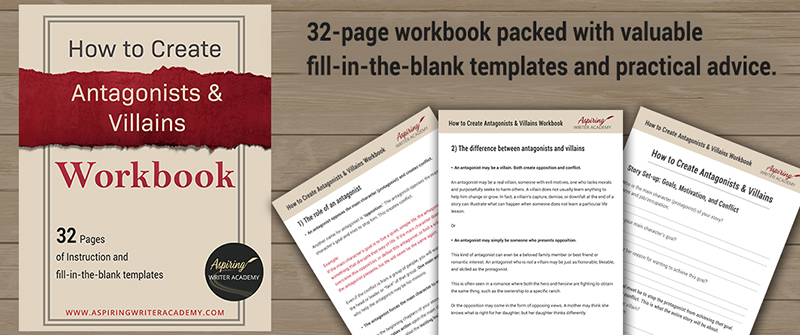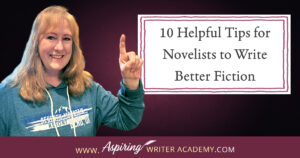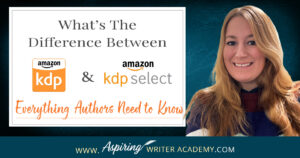20 Quick Novel Writing Tips for Beginners
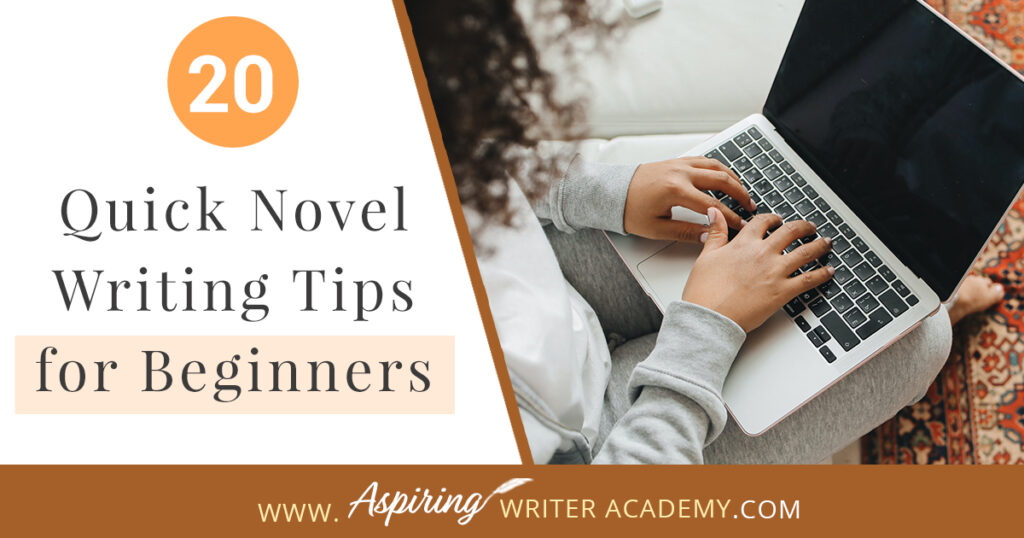
Writing a novel can be an exciting and fulfilling experience, but it can also be overwhelming for beginners. From developing characters to creating a plot, there are many elements to consider when writing a novel. If you're just starting out on your writing journey, you may be wondering where to begin. In this blog post, we've compiled 20 Quick Novel Writing Tips for Beginners to help you get started and stay on track. These tips will provide you with the guidance and inspiration you need to turn your ideas into a compelling and engaging story. So, let's dive in!
- Use hooks at the beginning of your story to capture readers' attention and draw them in.
- Use sensory language to create vivid and engaging action scenes.
- Use beta readers or an editor to ensure your characters are well-developed and consistent.
- Use pacing and structure to build suspense and tension in your story.
- Use active listening to get feedback from readers and incorporate their suggestions into your writing.
- Use writing sprints or timed writing exercises to increase productivity and break through writer's block.
- Use descriptive language to create a unique and memorable tone in your writing.
- Use social media to engage with your readers and build a sense of community.
- Use imagery and sensory language to create a strong sense of mood and atmosphere in your writing.
- Remember to enjoy the writing process and take pride in your accomplishments as an author.
11. Before you publish your book, work on building up your email list.
12. Use symbolism to add depth and meaning to your writing.
13. Use different sentence structures and lengths to create rhythm and pacing in your writing.
14. Research different genres and book categories before writing your book.
15. Use themes to give your writing a greater sense of purpose and meaning.
16. Use storyboarding or outlining to help organize your ideas and plot.
17. Use metaphors and similes to make abstract concepts more concrete and relatable.
18. Use social media influencers to promote your book to their followers.
19. Use unique and memorable character names to help them stand out.
20. Use the five senses in your writing: see, hear, feel, smell, and taste.
Writing a novel is an exciting and challenging endeavor but the satisfaction of holding a book you have written in your hands is definitely worth it. We hope that these, 20 Quick Novel Writing Tips for Beginners, help you with your writing journey. Remember to stay organized, take breaks when you need to, and don't be afraid to experiment with different writing techniques and styles. By staying focused and dedicated, you can turn your book from just a vague idea to an intriguing story. So, keep writing and never give up on your dreams!
Were these writing tips useful to you? Do you have any additional tips to share? Feel free to leave a comment below!
Do you find it difficult to create compelling antagonists and villains for your stories? Do your villains feel cartoonish and unbelievable? Do they lack motivation or a specific game plan? Discover the secrets to crafting villains that will stick with your readers long after they finish your story, with our How to Create Antagonists & Villains Workbook.
This 32-page instructional workbook is packed with valuable fill-in-the-blank templates and practical advice to help you create memorable and effective antagonists and villains. Whether you're a seasoned writer or just starting out, this workbook will take your writing to the next level.
Our Goal for Aspiring Writer Academy is to help people learn how to write quality fiction, teach them to publish and promote their work, and to give them the necessary tools to pursue a writing career.
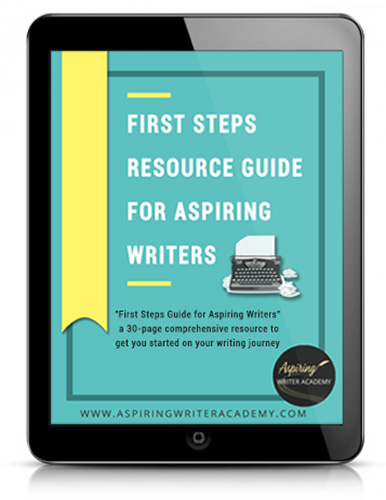
ENTER YOUR EMAIL
TO GET YOUR FREE
"First Steps Guide for Aspiring Writers" a 30-page comprehensive resource to get you started on your writing journey.
Other Blog Posts You May Like
How to Write a Novel While Working Full Time
How to Manipulate Pacing to Increase the Intensity of Your Scenes in a Fictional Novel
Learn to Plot Fiction Writing Series: Story Analysis of the Disney movie “Frozen”
Fiction Writing: The 3 Different Levels of Editing
Learn To Plot Fiction Writing Series: Story Analysis of the Movie “Top Gun: Maverick”
5 Reasons Your Writing Sucks! (And How to Fix It)
How to Brainstorm a New Novel Using Goal, Motivation, and Conflict
How to Write Query Letters (for Fiction)
Slingshot Week: How to Set New Goals for Writing in 2023
Novel Writing Tips: Don’t Bury the Dialogue!
How to Choose Characters to Populate Your Fictional Story
Fiction Writing: Critique Group Etiquette & Warning Signs of a Good Group Gone Bad
How to Prep for NaNoWriMo (National Novel Writing Month)
Fiction Writing: How to Plot a Story where the Antagonist is an ‘Invisible Foe’
Fiction Writing: How to Find a Critique Partner/Group
How to Research Information for a Historical Novel
7 Steps to Begin Writing a New Fictional Story
Learn to Plot Fiction Writing Series: Story Analysis of the movie “Signs”

